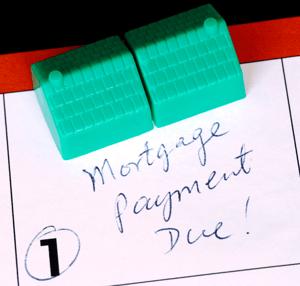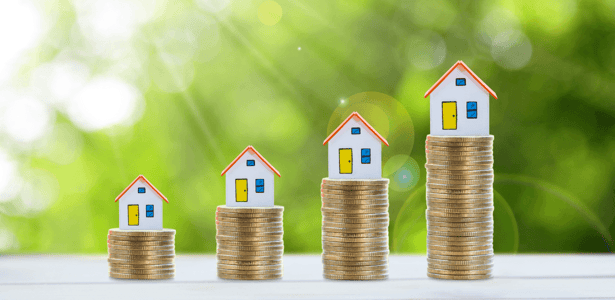When considering which is the right type of mortgage, most home buyers find they're hesitant when faced with the decision of whether they should get a fixed or variable rate mortgage. A fixed mortgage refers to a loan from a bank or financial institution that is paid back with (usually) monthly instalments plus an interest rate that is "fixed" or unchanging. A variable rate mortgage is paid back with an interest rate that changes based on the Bank of Canada's interest rate for lenders.
Choosing which one is right for you depends on a number of factors.
 Predictability Versus Risk
Predictability Versus Risk
With a fixed-rate mortgage, you'll always know exactly how much your monthly mortgage payments will be. When you apply to the bank or financial institution for the mortgage, the loan officer will calculate the interest based on the Bank of Canada's current lending rate to determine your monthly payments (the principle plus the interest rate). If you have personal or financial reasons to have a steady, unchanging monthly payment, the fixed mortgage will be more appealing.
The benefit of a variable rate mortgage, on the other hand, is that it allows the home buyers to assume some risk for the potential payout of substantial savings. With a variable rate mortgage, each month's payment is calculated based on the Bank of Canada's rates. Since these can change, homeowners can benefit by paying less when interest rates are lower but will suffer when interest rates are higher because the monthly payments will be bigger.
Essentially, a variable rate mortgage is a bet against the future, believing that interest rates will be (or remain) low. As with all such investments, there is an element of risk involved, as this strategy could backfire.
Affording More House For Your Dollar
Simply put, the new (as of 2016) laws in Canada require all home buyers to put a minimum of 5% upfront as a down payment on a home. But the law also says that any down payment of less than 20% needs to be backed by mortgage insurance guaranteed by the government of Canada.
Let's imagine that you have $10,000 saved up for a down payment. You could:
- Put 5% down towards a $200,000 house; or
- Put 20% down towards a $50,000 house.
In other words, for the same money ($10,000) you could buy a house that's four times as valuable. But the key calculation here is not the down payment so much as the mortgage itself.
Using the same figures:
- A $200K house - $10k down payment = $190k mortgage; or
- A $50k house - $10k down payment = $40k mortgage.
Clearly, that's a big difference! This is why the interest rate payments are such a crucial calculation, far more so than the down payment.
Therefore, the formula for home buyers to follow is: calculate how much can be paid upfront as the down payment (Sum1) and then calculate what will be affordable to pay every month for the mortgage (Sum2). Sum1 is rather inflexible as it must be cash. But Sum2 is what determines how much you can borrow and afford to reliably pay. Therefore, a bigger mortgage with a potentially lower rate of interest could allow you to buy a bigger house.
 Paying Off the Principal
Paying Off the Principal
The rules of your mortgage and the interest rate determine how much of your money goes toward paying off the principal (the loan amount) and how much of it goes toward paying interest (the bank's profit). If interest rates are low, you'll have more money to pay toward the principal, potentially giving you the ability to pay off the mortgage early and fully owning your home.
But if interest rates rise, and you have a variable rate mortgage, more of your money is going to pay off the interest than the principal, ultimately making the final price of the home more expensive.
Repayment Options
Lenders offer a dizzying array of special options and rules for their mortgages. These can include:
- Prepayment of mortgage repayments for a year in exchange for lower payments.
- Payment holidays, where special life events (including maternity leave) allow you to skip one or more payments.
- Early penalties – it may seem counter-intuitive, but many banks charge a penalty if you want to pay off the loan earlier than scheduled.
- Converting a fixed-rate mortgage to a variable rate or vice-versa – later on, you may be able to convert your mortgage either from your original lender or by having a second lender pay off the original lender.
Depending on the lender, there may be different fees or rates associated with these various exceptions depending on whether you have a fixed or variable rate mortgage. For instance, many banks charge three months' interest or the interest rate differential (whichever is more!) if you want to pay off your mortgage early.
There is no one answer to the question of if a fixed or a variable rate mortgage is best suited for all home buyers. Whether a fixed or variable rate mortgage is best for you depends on a number of factors, including the amount you can put towards a down payment, your credit score, your ability to get a mortgage at an advantageous rate from the bank or lender, your need for budget predictability, and your appetite for risk.
If you're looking for expert mortgage advice about how to prepare for your mortgage application, one of our preferred lenders would be happy to assist you.



 Predictability Versus Risk
Predictability Versus Risk Paying Off the Principal
Paying Off the Principal
